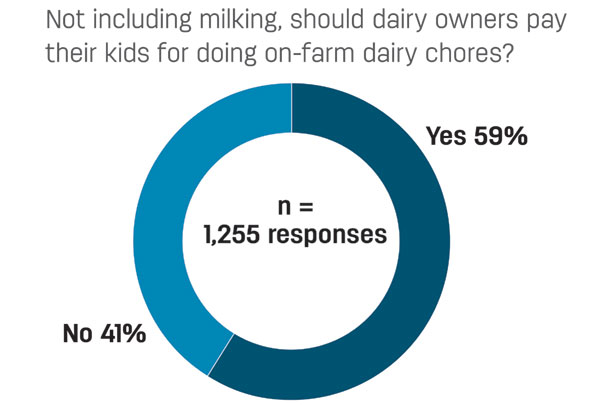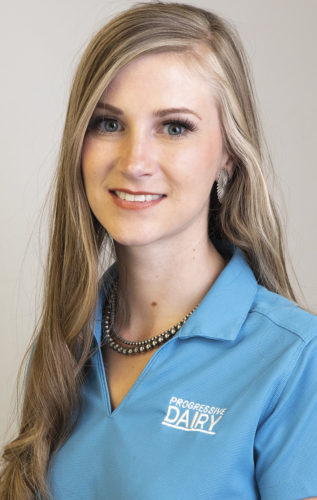U.S. dairy owners prefer paying their kids for doing on-farm chores other than milking. That’s according to recent online and phone surveys conducted by Progressive Dairyman. Among just the dairy producers we surveyed, the results were even more obvious in support of payment.
Beginning in September, Progressive Dairyman asked readers: “Not including milking, should dairy owners pay their kids for doing on-farm chores?” More than 1,255 responses were collected online and over the phone from September through November 2017. Participation in the online survey implied a preference, as the online poll only offered the responses “yes” or “no” as options.
Dairies who preferred to pay their children noted kids should not always have to work for free.
“We can’t just use kids as slaves. Paying them teaches them to work for what they get,” said one reader in Michigan with more than 500 cows.
By paying their kids, dairy farmers said their children learn to get paid when they’re productive and provides incentive for them to want to work. They also felt payment gives children a chance to learn how to earn, save, spend and manage money.
Every farm situation is different, and some owners felt payment depended upon circumstances such as the quality and amount of work done.
One reader from Indiana with 100-plus cows said he has mixed emotions about paying kids. “When there’s work to be done, it needs done – regardless of being paid. But I believe a job well done deserves payment.”

Others said payment depended on the age of the child. Most felt younger kids shouldn’t be paid, but the older ones should be compensated for their work. Farmers had differences of opinion about the right age to be paid. Some said payment should begin at 14, when old enough to drive, or if over 20.
Some dairy farmers choose to pay their kids in other forms. One reader from Missouri with fewer than 50 cows said he plans to let his daughter help with chores and then give her a heifer to raise as payment.
In contrast, dairy farmers who preferred not to pay their kids said their kids already receive food and a place to live, so they don’t need additional payment.
A dairy farmer in Missouri with 200-plus cows said, “Our kids don’t work for us; our kids work with us. We pay them in ways such as cars, insurance, etc. Should we pay our kids – no. Should we take care of our kids – yes.”
One dairyman’s daughter from Minnesota with more than 200 cows said, “I don’t feel like we need to be compensated for that. Maybe when you go to college and you come back to work on the farm, but I feel like we are compensated for pay by our parents providing food and gas.” ![]()

-
Audrey Schmitz
- Editor
- Progressive Dairyman
- Email Audrey Schmitz





